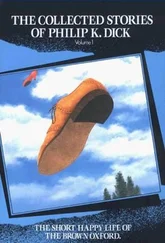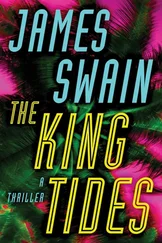“That’s my project,” he said.
“I know that.” Eriksson said nothing for a moment. Then he said, “Hang on a minute,” and there was the shuffling of motion from the other end of the phone. Then his voice again, quieter, closer than before: “Listen, between you and me, there’re some big rumors coming down the pipe. Stuff you’ll want to be in on and stuff that doesn’t have anything to do with being active flight or not.”
“I’ll bet.”
“I’m not kidding, buddy. Get well and get back here.”
“Yeah, OK,” Keith said. “I’ll do that.”
The conversation ended and Keith sat there in the empty house at the kitchen table, looking at the phone where it lay before him on the laminated wood-grain surface. The trucks continued to hum and rumble outside and after a long moment there at the table he rose and rummaged through the stack of bills and unopened mail and papers until he found the résumé that Peter’s wife had given him and then he sat again at the table and read through it carefully. It was a generic résumé that listed every possible facet of Petruso Kovalenko’s education and work experience, from menial jobs to the highly skilled work he had done at the Golosiiv observatory. There were references listed, good ones by the look of it, the scientists and engineers that Peter had mentioned during their conversations in the vacant lot: Federov and Kuzmenko and even Vanekov, the man who apparently ran the entire observatory compound. The last two sheets in the packet were photocopied letters from Kuzmenko and Federov, letters written in English on official letterhead festooned with Ukrainian characters.
He removed his laptop from its bag and opened it and looked through his address book and sent out two e-mails, the first to the head of Dreyfuss Research Center and the second to the head of personnel at Johnson Space Center. Apart from the greeting, the two e-mails were identical in content, each asking if the recipient would be willing to look at a résumé if he sent one over, that he knew a man who was an amateur astronomer who had worked with some of the big names in Ukraine and was looking for employment in the United States, that the man was intelligent and well qualified but had no official degree. He listed Peter’s name and the names of the references he listed at Golosiiv and a few points about the résumé. He knew it was likely that nothing would come of the e-mails but he had at least tried. Perhaps he would never hear anything. Perhaps his own name was such that an unsolicited e-mail from him would curse Petruso Kovalenko’s employment possibilities forever.
“A little early isn’t it?” Keith said.
“Have you seen what has happened?” Peter said.
“To what?”
“Come and see. It is terrible, I think.” Peter’s eyes were glassy with tears.
“Christ, are you OK?”
“Come and see,” he said again.
Keith’s first thought was that Peter was drunk and that they would have some replay of the scene in front of Starbucks. The telescope was nowhere to be seen and the sun low but still present in the sky.
Keith checked that his keys were in his pocket and stepped outside. Peter led him toward the street to the sidewalk and started to point but his eyes were already there. He had not been out of the house since his conversation with Eriksson and had ceased to notice the rumble of what he had assumed to be trucks in the cul-de-sac; those sounds had faded into the background and with them had faded the threat of a migraine. But now he found himself wishing he had listened more closely, for it had not been trucks he had ignored for most of the day; it had been tractors.
The vacant lot at the end of the cul-de-sac had been crisscrossed repeatedly, the thistle and debris cleared so that most of the lot was flat and bare. In the distant corner, a mountain of fresh dirt rose up in a huge brown cone and closer, flanking the leather sofa as if guarding it, two huge yellow machines: one with a thick, heavy scoop in the front, the other a backhoe equipped with a curved bucket lined with square teeth.
“Terrible thing,” Peter said.
“Shit,” Keith said.
“They do not touch sofa.”
“Not yet.”
“What are they doing?”
“I don’t know,” Keith said. “Building.”
“Building what?”
“Another house, I guess.”
He stepped toward the end of the cul-de-sac and Peter followed almost as a child might follow a parent, always keeping one step behind as if Keith could somehow shield him from whatever evil lay before them.
“It does not even look like same place,” Peter said. “Just terrible. Catastrophe.”
“I wouldn’t go that far,” Keith said.
Peter did not answer. They stopped at the end of the sidewalk. The thistle was flattened there and a few feet farther in it was gone altogether, only dirt remaining. The thistle and weeds had partially obscured the sofa from the street but now in the bare field it seemed alien and incongruous, tufts of dry undergrowth surrounding the lumpy shape like the frayed edges of some weird throw rug.
“We should take sofa back into your house,” Peter said. “Yes?”
Keith shook his head. “I don’t want that thing.”
“No?”
“No.”
“They will take sofa, though.”
“They will,” he said. “Do you want it?”
Peter did not answer and Keith thought he was likely thinking it over but when he glanced over at him there were fat tears sliding down his face. “Fucking shit,” Peter said. “I am embarrassed.” He wiped at his tears, tried for a moment to control himself and then sobbed violently.
Keith looked back at the vacant lot again. The tractors like awkward insects that had descended there from some planet of yellow metal. “You can find somewhere else,” he said. “There are still vacant lots around somewhere.”
“This one was mine,” Peter said. “I am sorry to be like a girl with crying. I am stupid man.”
“It’s OK.”
“Fucking shit. I hate this country.”
Keith said nothing now, the words meaningless, the sun continuing its descent toward the houses to the west of them, the cul-de-sac already in shadow. Both of them quiet and the distant and constant hiss of the freeway and the million parking spaces being filled and unfilled by a million shoppers the only sound until Peter spoke again. “Look,” he said.
“At what?”
“There.” He pointed a finger above them at the sky and Keith followed the line and there it was. Far up above them, above the tractors and the sofa and the cul-de-sac and the endless sprawl, floating there in the last light before the sun crested those endless houses to the west and dipped out past the edge of the earth itself was the great dark bird.
“Oh,” Keith said, not a word but an inrush of breath, his eyes wide.
“Your big bird, I think.”
“Yes,” Keith said. “Yes.”
“Not eagle, I think,” Peter said. “Vulture.”
“Vulture?”
“What they call it. Um …” Peter paused and then said, “Buzzard.”
“Buzzard?”
It was no eagle, no bird of prey at all but rather a scavenger. Shit. Fantastic. Even now it turned above them, perhaps peering down at the empty lot, the tractors and the sofa and the two men standing there looking back at it and perhaps it regarded them all as inconsequential to its welfare. There was nothing to eat and so there was no reason to descend. Perhaps it would never change its infinite circle. Perhaps now it would never come down.
“A vulture,” Keith said. “That’s just fantastic.”
Peter said nothing. The two of them stood in much the same aspect as they had for those nights under the stars, side by side, heads tilted back, staring up into the dome of the atmosphere as if it might reveal something of itself that had been held in secret.
Читать дальше












